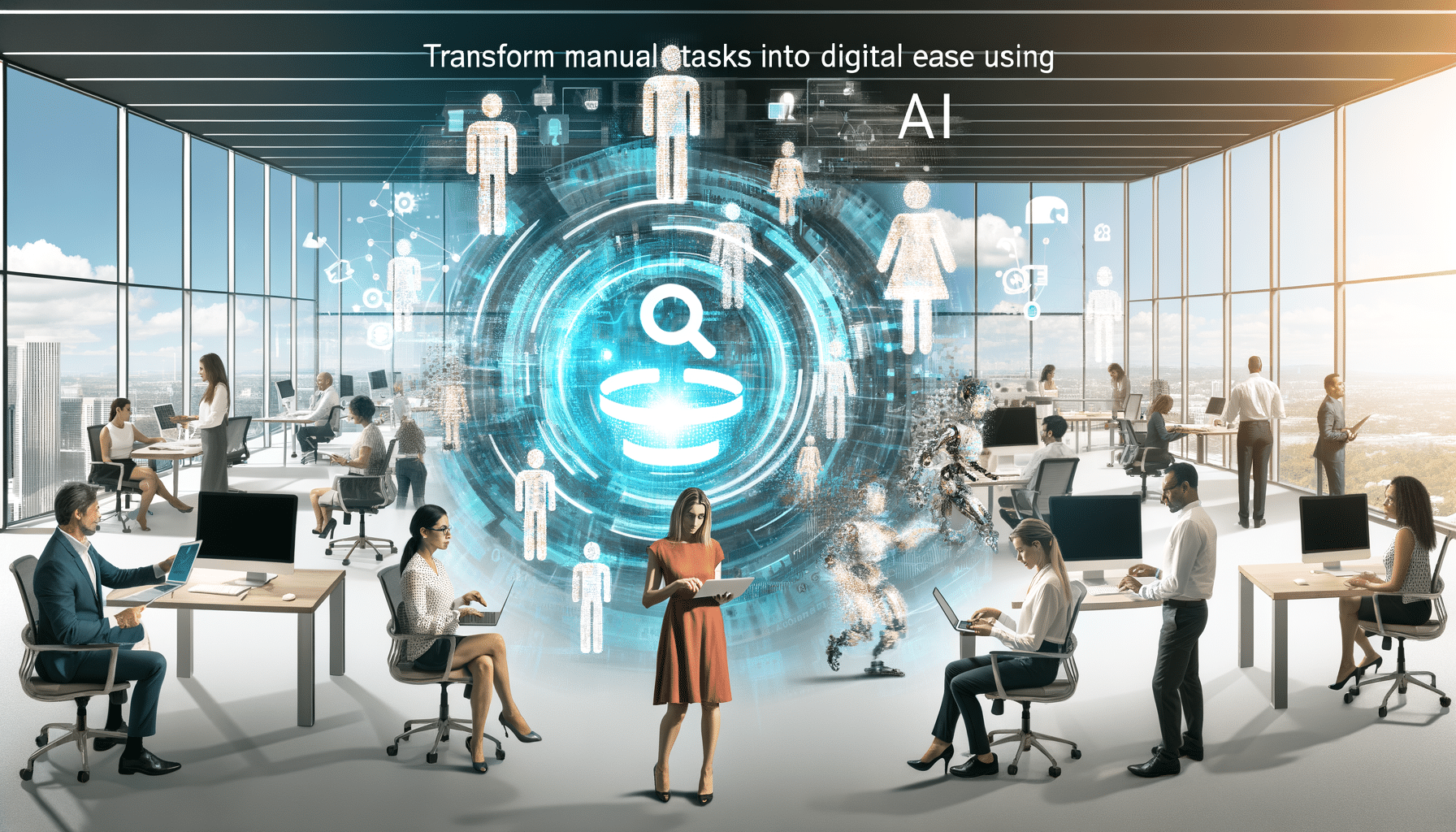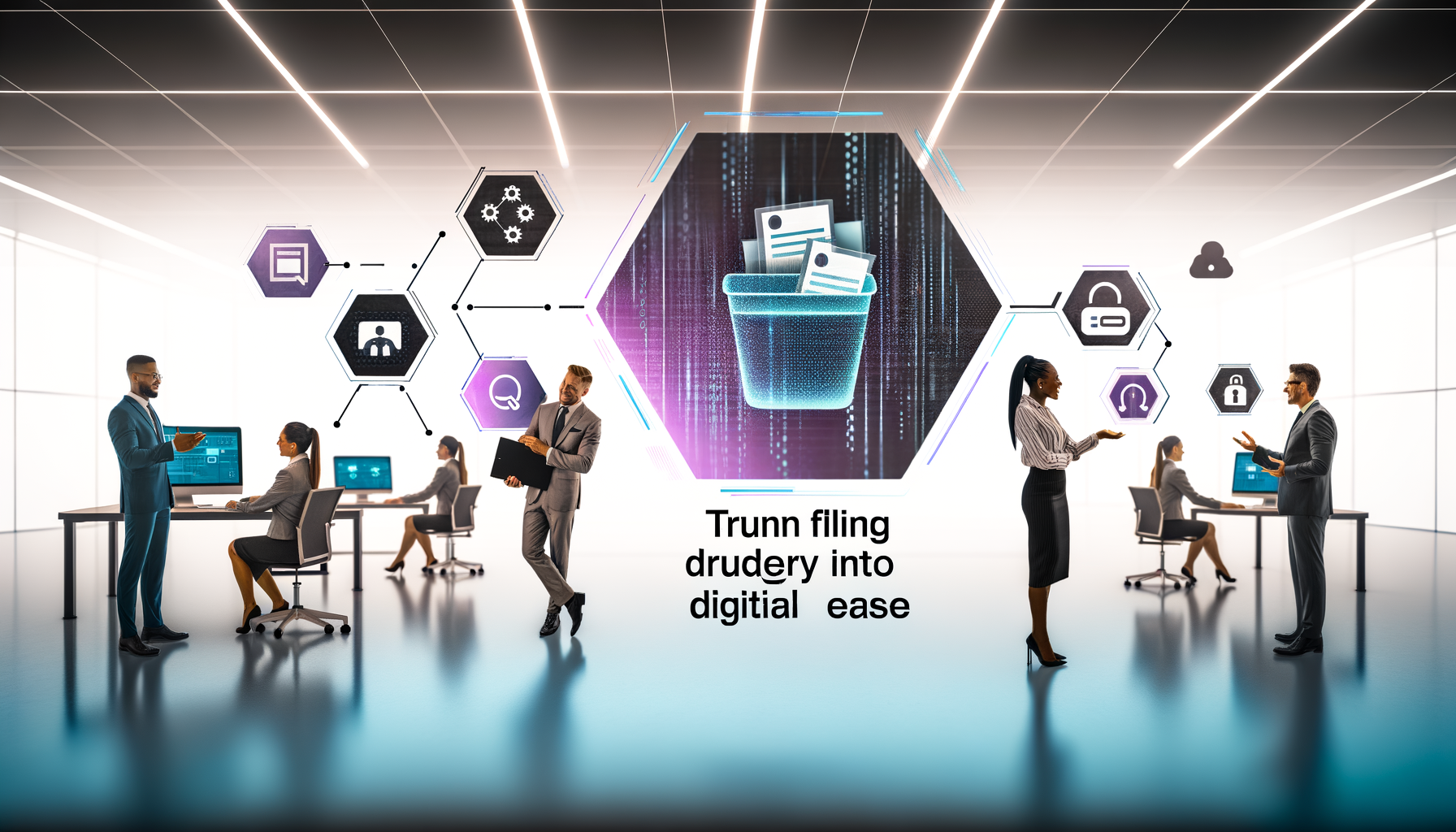- Digital Transformation
- February 6, 2023
Exploring Blockchain’s Impact on Digital Transformation

In today’s rapidly evolving technological landscape, businesses and organizations are in a perpetual race to remain competitive, efficient, and innovative. One of the buzzwords that has become almost synonymous with this digital evolution is “digital transformation.” But what does this really mean, and how does blockchain technology fit into the broader picture? In my journey of creating RecordsKeeper.AI, a revolutionary SaaS platform for record management, I’ve had the opportunity to witness firsthand the transformative power of blockchain. Let’s delve into how this technology is not just an option, but a catalyst for digital transformation across industries.
The Building Blocks of Digital Transformation
Digital transformation is more than just adopting new technology; it’s about fundamentally changing the way an organization operates and delivers value to its customers. This involves rethinking business models, integrating digital solutions into every area of the enterprise, and fostering a culture of agile adaptation. That’s where blockchain technology becomes crucial.
Blockchain offers a decentralized and transparent system, offering a unique way to approach data management, security, and innovation. By integrating blockchain into business operations, companies can enhance efficiency while reducing costs. But how does this translate into practical, real-world application?
Blockchain: The Game-Changer
Often associated with cryptocurrencies like Bitcoin, blockchain is much more than a digital currency ledger. It’s a technology that provides immutable, encrypted records of transactions and data exchanges across various nodes or participants in a network. This is particularly vital for industries where data integrity and security are paramount.
- Healthcare: Blockchain’s ability to record and share patient data securely can streamline processes and improve outcomes while adhering to compliance standards like HIPAA.
- Finance: In finance, blockchain can automate and secure transactions, eliminate intermediaries, and provide real-time tracking of data, drastically improving efficiency.
- Supply Chain: Blockchain’s traceability features ensure product authenticity and enhance transparency, aiding in regulatory compliance and customer trust.
These are just a few examples, but the potential applications are limitless. By leveraging blockchain, businesses can create a secure, transparent, and efficient digital environment that not only supports current operational needs but prepares them for future innovations.
Integrating Blockchain into Records Management
At RecordsKeeper.AI, the primary challenge we addressed was revolutionizing records management. Traditional methods are not only cumbersome but prone to errors and security vulnerabilities. With blockchain, we have transformed these shortcomings into opportunities for strategic advancement.
By automating categorization via AI and securing data with blockchain’s immutable ledger, we have created a system that not only maintains data integrity but also enhances accessibility and compliance. This is particularly crucial for sectors dealing with sensitive data or stringent regulatory environments such as legal and financial industries.
Moreover, the incorporation of blockchain into RecordsKeeper.AI has enabled us to offer comprehensive audit trails, proving invaluable during audits and compliance assessments. The ability to track every transaction and data point provides unparalleled transparency, something traditional systems struggle to achieve.
Overcoming Challenges with Blockchain Adoption
Despite its benefits, blockchain adoption is not without challenges. Cost concerns, technological integration, and the need for regulatory frameworks can deter some organizations. However, the long-term benefits far outweigh the initial hurdles.
Businesses must view blockchain as a strategic investment. It’s crucial for leaders to build a robust digital strategy, one that includes exploring educational opportunities, investing in skilled workforce training, and staying abreast with technological developments.
The Future is Here
With digital transformation reshaping industries worldwide, blockchain stands as a powerful enabler, ready to redefine what is possible in the digital age. As I reflect on the impact this can have, I cannot help but feel excited about the potential advancements. For me, at RecordsKeeper.AI, every challenge presents a new opportunity to pioneer advancements that redefine industry standards.
Are you ready to embrace this change? Stay connected with me for more insights on leveraging blockchain to drive a more efficient, transparent, and digitally transformed future. Together, let’s harness the power of blockchain to unlock new dimensions of growth and innovation.
Toshendra Sharma is the visionary founder and CEO of RecordsKeeper.AI, spearheading the fusion of AI and blockchain to redefine enterprise record management. With a groundbreaking approach to solving complex business challenges, Toshendra combines deep expertise in blockchain and artificial intelligence with an acute understanding of enterprise compliance and security needs.
Related Posts

Transform Manual Tasks into Digital Ease Using RecordsKeeper.AI
How AI automates manual documentation tasks.
- November 16, 2024

Turn Filing Drudgery into Digital Ease With RecordsKeeper.AI
How AI transforms manual filing into digital efficiency.
- November 16, 2024
Archives
- January 2025
- December 2024
- November 2024
- October 2024
- September 2024
- August 2024
- July 2024
- June 2024
- May 2024
- April 2024
- March 2024
- February 2024
- January 2024
- December 2023
- November 2023
- October 2023
- September 2023
- August 2023
- July 2023
- June 2023
- May 2023
- April 2023
- March 2023
- February 2023
- January 2023
- December 2022
- November 2022
- October 2022
- September 2022
Want to get more content like this?
Signup to directly get this type of content to your inbox!!
Latest Post
Document Control for Equipment Maintenance
- January 20, 2025
Managing Records for Multiple Clients
- January 19, 2025
Handling Conference Documentation
- January 18, 2025
Setting Up Department Record Reviews
- January 17, 2025





